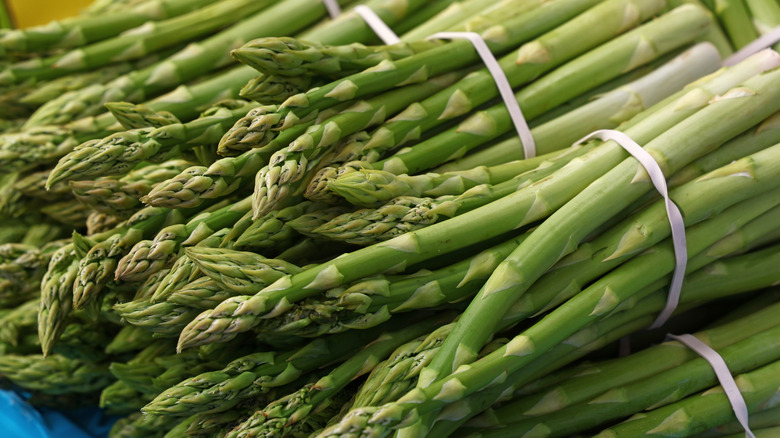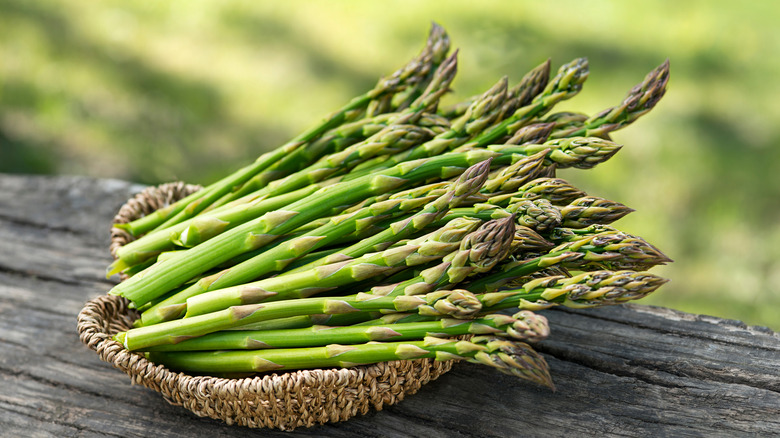The First Thing You Should Do With A Fresh Bunch Of Asparagus
Fresh asparagus is a wonderful and versatile ingredient. Looking for a nice bit of crunch in your salad or pasta dish? Try blanching thin asparagus and chopping it. Love a hearty grilled vegetable next to your steak or chicken? Try marinading and grilling the thicker asparagus stalks.
While some vegetables can save in your refrigerator or in your produce bowl for a few days, asparagus is not one you want to sleep on. If you're planning to prepare it, you might want to consider purchasing it the day of, or the day before at the very soonest.
Whether you're buying asparagus at the farm stand or in the grocery store, there is one pivotal step you want to take when you bring it home. Asparagus stalks might appear to be sturdy and strong but they can be subject to bruising and wilting. So, it's important to take care when you get them in the door.
Let them breathe
If you cook with asparagus often, you know texture is key. After all, limp asparagus isn't desirable in any way, shape, or form. Keeping your asparagus refrigerated before you cook with it is part of that, but another important element is to let the asparagus breathe. Most asparagus you buy from a farmer or grocer will come in a bundle that is tightly held together with a rubber band. While asparagus is a hearty vegetable, cut that rubber band as soon as you get home. Leaving it on can lead to your asparagus being bruised and becoming limp or rubbery when you cook it.
As previously mentioned, asparagus is a vegetable that is best eaten soon after you buy it. Day of is preferred, but if you can't get to it quite yet you can store it in a couple of creative ways to help it stay fresh. Trim the bottoms of the asparagus spears and then put them in a jar with about an inch of water (almost like you would a bouquet of flowers.) Cover that with a plastic bag and store it in your refrigerator — or you can also keep loose asparagus in a produce bag in the veggie drawer of your refrigerator.
No matter how you store them, be sure to free them from their bonds as soon as you're home.

